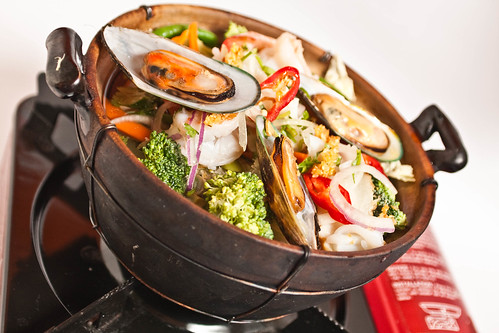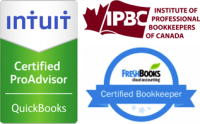
Do you know how to properly deduct your meal expenses? There are different rules for different people depending on who you are, who you work for, and what your employment contract states when it comes to deducting your meals.
The 50% Rule: The maximum amount you can claim for food, beverages, and entertainment expenses is 50% of either the amount you incur or an amount that is reasonable in the circumstances, whichever is less.
What is reasonable? Ultimately the CRA defines what is reasonable. If you get audited, you will have to prove to the CRA auditor that your expense was reasonable. Is it reasonable to spend $500 on entertaining a client who pays you $50 a year? Probably not.
These limits also apply to the cost of your meals when you travel or go to a convention, conference, or similar event. However, special rules can affect your claim for meals in these cases. See sections on solo travellers and conventions below.
These limits DO NOT apply if any of the following apply:
-
Your business regularly provides food, beverages, or entertainment to customers for compensation (for example, a restaurant, hotel, or motel).
-
You incur meal and entertainment expenses for a Christmas party or similar event, and you invite all your employees from a particular location (note that you are limited to six of these events each year).
-
You bill your client or customer for the meal and entertainment costs, and you show these costs on the bill.
-
You incur meal and entertainment expenses for a fundraising event that was mainly for the benefit of a registered charity.
Claiming Meals For Business
What business gifts are you giving your clients? There are tax implications to the choices of gifts you purchase. Gift baskets (with food in them), gift cards to restaurants and coffee shops are considered meals. Which means they are only 50% deductible to you.
Many businesses supply coffee, tea, creamers, bottled water, juice, pop, snacks, or sometimes alcohol in the office fridge. In order to claim these, you must have a business reason, the names of who participated and the reason for consumption.
Also as a business, you are allowed to write off six office events a year and claim a 100% deduction on those events.
For any entertainment expenses to qualify as a business expense, you must be able to demonstrate that the amount was incurred for the purpose of earning income, the onus is on you as the business owner to keep track.
You must have a business reason as well as names of customers or persons being entertained. For example, if you’re going to spend big money on tickets to a hockey game, keep a record of who you were entertaining and have a good reason for it. The more expensive something is, the more important it is to have a good reason for conducting business.
Never eat or drink alone if you want to write it off unless you are one of the exceptions. Take office breaks with a co-worker, call it team building and you can write it off. Be sure to write on the receipt, who you were with, and what was the purpose.
A cautionary tale: a client was recently audited and asked to provide the name and phone number for each receipt that had been deducted, the client was not able to provide this information, and all the meals were disallowed. It’s all good…until you get audited.
Convention expenses
You can deduct the cost of going to conventions, up to two a year. The conventions have to:
-
relate to your business or your professional activity; and
-
be held by a business or professional organization within the geographical area where the organization normally conducts its business.
This second limit may not apply if an organization from another country sponsors the convention, and if the convention relates to your business or professional activity.
Sometimes, convention fees include the cost of food, beverages, or entertainment. However, the convention organizer may not show these amounts separately on your bill. If this is the case, subtract $50 from the total convention fee for each day the organizer provides food, beverages, or entertainment.
You can deduct this daily $50 amount as a meal and entertainment expense. However, the 50% limit applies to the daily $50 amount.
Food, beverages, or entertainment at a convention do not include incidental items such as coffee and doughnuts available at meetings or receptions at the convention.
Travelling Expenses for Employees
Travelling expenses include food, beverage, and lodging expenses but not motor vehicle expenses. You can deduct travelling expenses as long as you meet ALL of the following conditions:
-
You were normally required to work away from your employer’s place of business or in different places.
-
Under your contract of employment, you had to pay your own travelling expenses.
-
You did not receive a non-taxable allowance for travelling expenses.
-
You keep with your records a copy of Form T2200, Declaration of Conditions of Employment, which has been completed and signed by your employer.
The 12-hour rule: You can deduct food and beverage expenses if your employer requires you to be away for at least 12 consecutive hours from the municipality and the metropolitan area of your employer’s location where you normally reported for work.
Solo Travelling employees
For a solo meal, you need to know if you fit into one of the special categories or if you have a contract that states whether you are required to carry on duties in different places.
As a rule of thumb travel and eat and drink solo at your own peril.
If you do, keep a log of how long you were away, why you were away, and how come you couldn’t get back within 12 hours.
Arrange your meals together with an employee, team member, colleague, client, customer, supplier, or partner to discuss business matters.
Unless you meet the criteria of railway worker, commission sales, transport, or have a contract to carry on duties away from the place of business or in different places, remember the 12-hours-away rule.
References:
Travel solo at your peril http://www.taxdetective.ca/articles/article/1482041/89556.htm
Canada Revenue Agency

